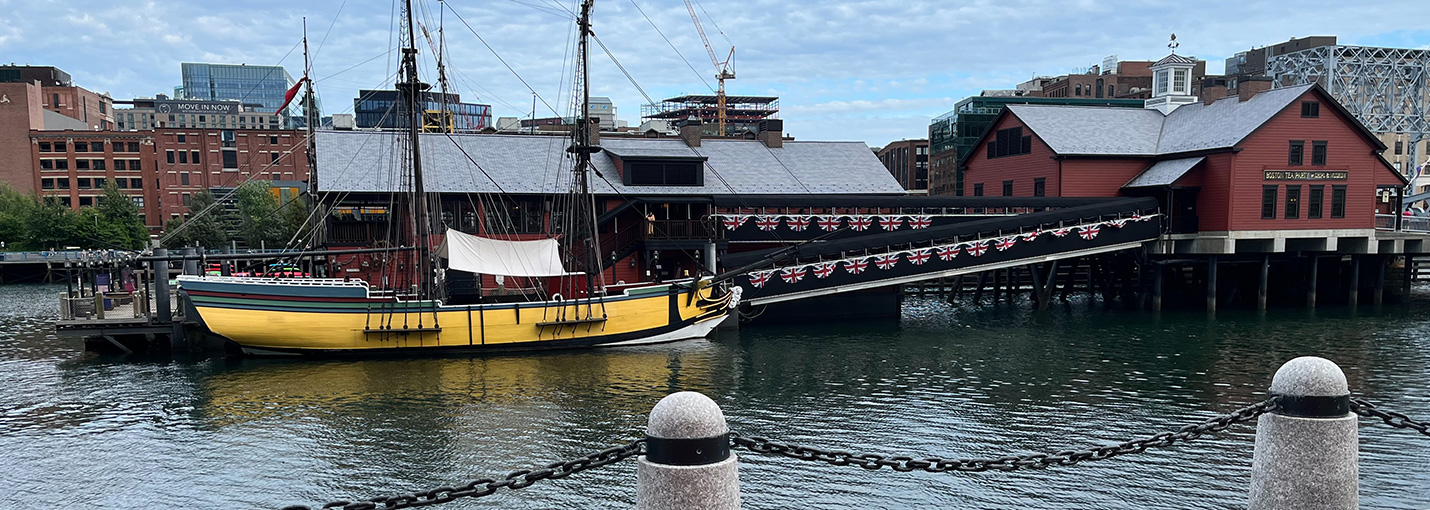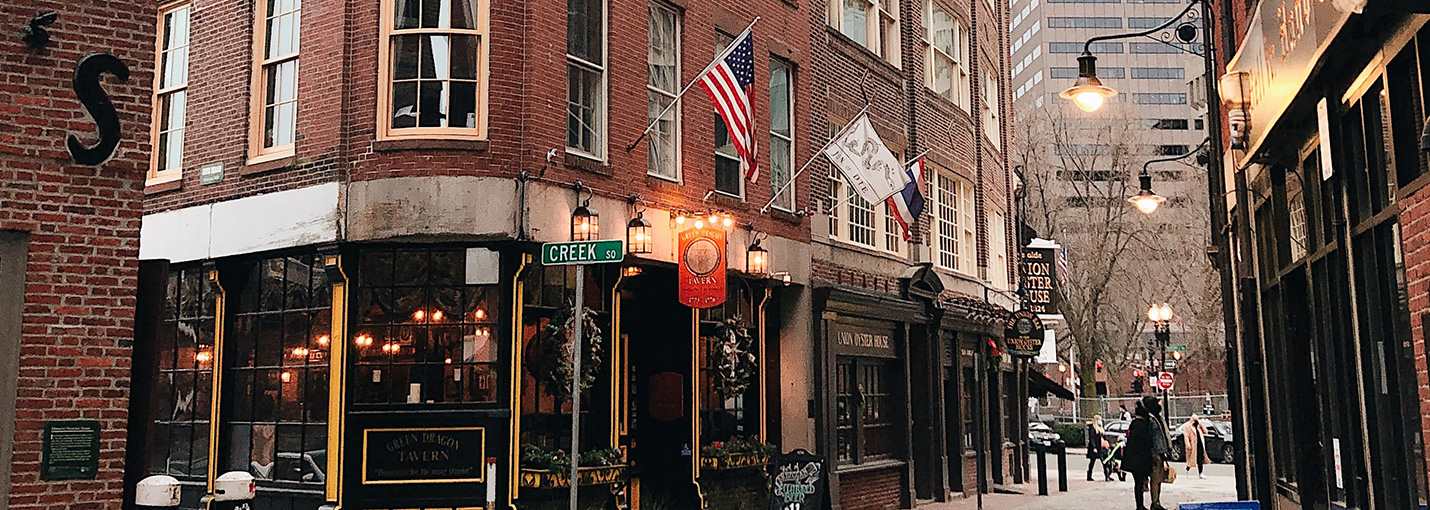Despite its beauty and history, Boston still carries the lingering effects of asbestos.
Mesothelioma is a devastating disease that results in a tragic ending for many of its victims. As a result of asbestos exposure, residents in Boston, Massachusetts, may be unaware of their risk of developing this cancer. For the past 100 years, asbestos was used for its durability and fireproof qualities, and it wasn’t until 1989 that the Environmental Protection Agency (EPA) officially recognized the microscopic fibers as being dangerous and sought to phase it out.


Asbestos is an ongoing problem in Boston.
While the EPA has stepped up its efforts, it is far from perfect in its goal of removing asbestos from older buildings. In May of 2022 a massive pile of asbestos soil was dumped by the Massachusetts Department of Transportation (MassDOT) near a public housing community in Chelsea, Massachusetts, for example. Chelsea is just across the mystic river from Boston. This not-so-long-ago event left residents unknowingly exposed.


Massachusetts, in general, is ranked the 13th state in the nation for asbestos- and Mesothelioma-related deaths. With a death toll of 1680 from 1970 to 2022, 1441 have so far lost their lives to mesothelioma. That number is staggering. And due to the historic nature of the city of Boston, asbestos could very literally be everywhere.
The History of Boston, Massachusetts
When you think of Boston, several things may come to mind – no-rhotic accents, the Boston Tea Party, John F. Kennedy Jr., and Boston cream pie, to name a few. Boston is also a city that is synonymous with American history. Settled by the Puritans in 1635, it is often thought of as the birthplace of the American Revolution. Historic events took place throughout the city in its early days, and many famous figures hail from Boston.


Today the city is home to nearly 700,000 people (based on 2020 data). With its perfect blend of old colonialism and modern urban development, it’s a diverse landscape of many cultures. Cobblestone streets, museums, and monuments are intermixed with structures including Fenway Park, Boston Common and other present-day attractions. The city is a perfect spot for any history buff or curious traveler to visit.
Boston is a prosperous city but its industry leaves a legacy of asbestos.
Boston is also known as being one of the richest cities in the nation – and the world. Ranked the 9th richest city in the world, Boston’s economy is not only vast and thriving but it hails well-known leaders in many fields. The Massachusetts Institute of Technology (MIT) is at the forefront of innovation and takes a seat alongside many of the highest ranked education and healthcare systems in the U.S.
Asbestos and Mesothelioma
What is Asbestos?
Asbestos is a naturally occurring mineral that was mined in the U.S. beginning in the late 1800s. It was popular because of its strength, durability, ability to withstand heat and inexpensiveness. Asbestos was commonly added to construction materials, including insulation, floor and ceiling tiles and roofing shingles, and these deadly fibers continue to be used in the automotive industry and in cement. The federal government has yet to totally outlaw asbestos use, even though it has been banned in many other countries.
Dangers of Asbestos Exposure
If left alone, there is little danger from asbestos. Asbestos in cement, for example, will only cause problems if the material is cut, damaged, or crumbles with age. Asbestos in insulation becomes dangerous only when the insulation is exposed. Once freed, tiny particles get released into the air. This is what’s referred to as “friable asbestos,” and in this form, people often breathe in the fibers without knowing it.
Once inside the body, asbestos attaches itself to the lungs permanently, causing irritation. Eventually, a person directly exposed, or their family members who have been exposed secondhand, can develop life-threatening illnesses, and these illnesses may not appear for decades.
There is no safe level of asbestos for humans. Breathing in asbestos particles is always dangerous. And, although the public became aware of the dangers in the 1970s and it began to be heavily regulated the following decade, many older structures still contain the mineral. Improper demoing or renovating of aging buildings continues to expose construction teams, and those who previously worked with asbestos continue to get sick.
Mesothelioma dangers in Boston
One of the most aggressive, fast-acting cancers linked to asbestos exposure is mesothelioma. Once diagnosed, many patients only have months (or even just weeks) to live. It spreads quickly, deteriorating quality of life and leaving those diagnosed desperate to find ways to combat it.
Some treatments can prolong life for a few months and comfort the afflicted person, but there is no cure. Opdivo and Yervoy are two drugs being studied now for their ability to stop mesothelioma tumors from developing. Also, a combination of hyperthermic intrathoracic chemotherapy and surgery is effective in slowing down the course of the disease. While these are options, they’re both limited in scope and expensive.
Legal solutions for mesothelioma in Boston
As a result, many mesothelioma sufferers and their families seek legal solutions to pay for treatment or to receive damages for loss of life. There are many avenues that one can take to get compensation, and it’s best to seek the help of a professional well-versed in the process.
One solution is to turn to bankruptcy trusts that have been established by employers offering payment to employees and their loved ones. These trusts offer a chance to receive significant compensation quickly without the hassle and time delays associated with filing a lawsuit.
When you work with the experts at AsbestosClaims.Law, you’re working with a team of dedicated legal professionals who have years of experience navigating the often complex claims system. Not only will this alleviate some confusion and any missteps along the way, but the team doesn’t make a dime until your case is won. That means, you won’t owe anything until you cash your check. It’s a win-win!
!
Speak with your healthcare provider about screening if you may have been exposed to asbestos. Early intervention is everything.


Boston Mesothelioma Resources
Given its historic nature, asbestos is bound to be common in Boston. Luckily the state of Massachusetts has come a long way in regulating and managing the removal of this toxic material.
With a vast array of resources at its disposal, the city of Boston provides numerous services to help eliminate asbestos waste. From debris clean up to federal and state informational sites, including EPA.gov, OSHA.gov, and Mass.gov, there is a wealth of resources available to ensure Bostonians and the many visitors who flock to the city each year remain safe. Knowledge about the harmful effects of asbestos and how to remove it properly is just one click away.
Massachusetts Department of Labor efforts to address asbestos exposure
In 2021, the Massachusetts Department of Labor (DLS) also revised its asbestos regulations, requiring stricter license policies and hiring requirements in the removal of asbestos waste. Tightening up removal measures makes it more likely that complications can be avoided.
Massachusetts Department of Environmental Protection
The Massachusetts Department for Environmental Protection (MassDEP), which is similar to the EPA but on a state level, has strict guidelines regarding who can dispose of asbestos and the procedures for doing so. According to the organization, asbestos requires not only proper storage in airtight containers, but these containers must be labeled with warnings prior to being shipped or dropped off at a MassDEP approved landfill.
Mesothelioma treatment in Boston
For those who have already been diagnosed with mesothelioma and other asbestos-related diseases, these efforts may be of little consolation.
However, Boston is home to a groundbreaking cancer treatment center, the Dana-Farber Cancer Institute, which is known for its cutting-edge options. With a staff of over 5,000, it has secured approval for over 50 drugs by the EPA and continues to determinedly research cancer eradication while doing so onsite.
Industries in Boston with High Exposure Risk
With Boston having one of the highest death rates in the country from asbestos-related illnesses, it would be helpful to understand the underlying causes. Some industries that are at the highest risk of exposure include shipyards, power plants, textile factories, schools and military bases.
The Boston Naval Yard can be a source of hazardous asbestos exposure.
Many specific areas in Boston have also been linked to asbestos illnesses including the Boston Naval Yard, Pilgrim Nuclear Plant, and the Tyco Health Group Textile Mill. Individuals employed in these industries or who are serving our country are likely to have been exposed to asbestos and could later develop mesothelioma, asbestosis, and various cancers such as thyroid, kidney, and ovarian cancer. And not only are employees at risk, but they can bring the microscopic fibers home, endangering loved ones secondhand.
Do You Qualify For Compensation?
Quickly and easily find out how you were exposed by searching W.A.R.D., the largest asbestos database on the planet.
FREE SEARCH >Asbestos was carried by workers into homes in Boston, exposing spouses and kids.
A ‘indestructible’ material used for its high heat resistance, fibers were added to clothing, tapestries, floor tiles, and construction materials and more. Since the material could be heated, workers would breathe in asbestos particles, causing chest tightness, lung scarring, wheezing and coughing. Over time, this exposure has led to mesothelioma, a very aggressive form of cancer that affects the lungs and sometimes the colon. The current survival rate of this disease is only around 10% and life expectancy is around 4 to 18 months after diagnosis.
A Mesothelioma Lawyer Can Help You
Developing mesothelioma from asbestos exposure can be life-threatening. This can lead to uncertainty about the future, tangential health problems and undue stress which can weigh heavily on a person. The cost of medical bills and the inability to work due to the cancer’s progression can be devastating.
Many people don’t realize what they are entitled to after being exposed. Seeking the help of an asbestos injury attorney can ensure you have your options laid out for you.
Although these claims can be difficult, the attorneys at AsbestosClaims.Law will get you the helpful representation that you deserve. Using W.A.R.D., which stands for the Worldwide Asbestos Research Database, Justinian C. Lane & Associates helps to pinpoint where and when you may have been exposed as well as which products could contain asbestos. W.A.R.D. will also help determine what compensation and how much of it you may be entitled to.
When working with Justinian C. Lane & Associates, victims don’t have to worry about paying the costs upfront. You won’t pay a cent until your case is won and compensation has been paid out. The only risk is waiting to contact a lawyer to help you. Give us a call today!


AsbestosClaims.Law
AsbestosClaims.law is your comprehensive resource for all things asbestos. We hope this information is helpful.
If you have any additional questions or concerns related to asbestos, check out our website and YouTube page for videos, infographics and answers to your questions about asbestos, including health and safety, asbestos testing, removing asbestos from your home and building, and legal information about compensation for asbestos injuries.
If you believe that your home was contaminated with asbestos, or you believe that you were exposed to asbestos, or have been diagnosed with an asbestos illness, you could be entitled to significant compensation—money you could use to cover the costs of asbestos removal services, pay for medical treatment, and preemptively protect your physical well-being.
All without filing a lawsuit.
If you’d like help with filing a claim, please get in touch by email at [email protected], or call or text us at (833) 4-ASBESTOS (427-2378) or (206) 455-9190. We’ll listen to your story and explain your options. And we never charge for anything unless you receive money in your pocket.
Kara Franke & Dennis Paustenbach (2011) Government and Navy knowledge regarding health hazards of asbestos: A state of the science evaluation (1900 to 1970), Inhalation Toxicology, 23:sup3, 1-20, DOI: 10.3109/08958378.2011.643417






